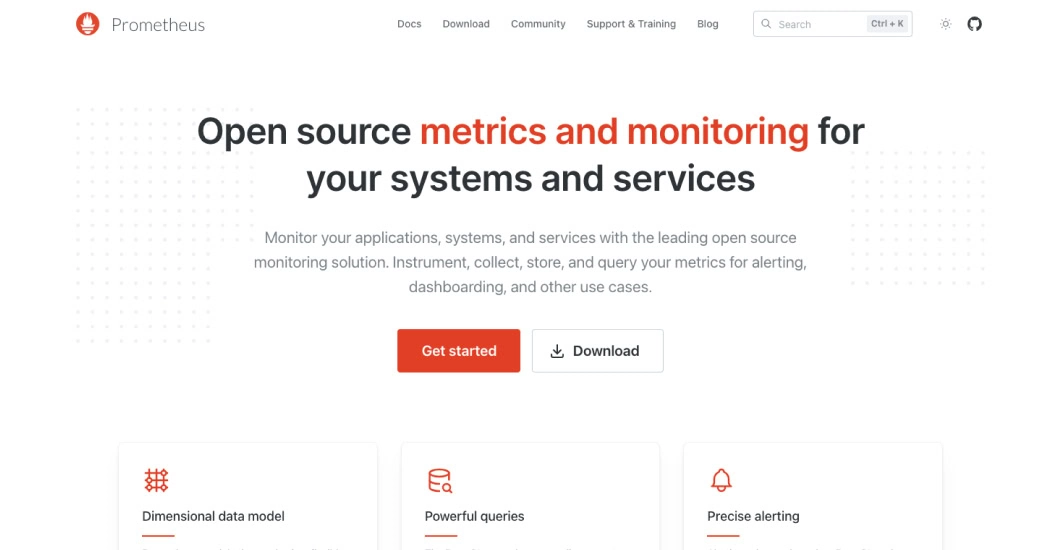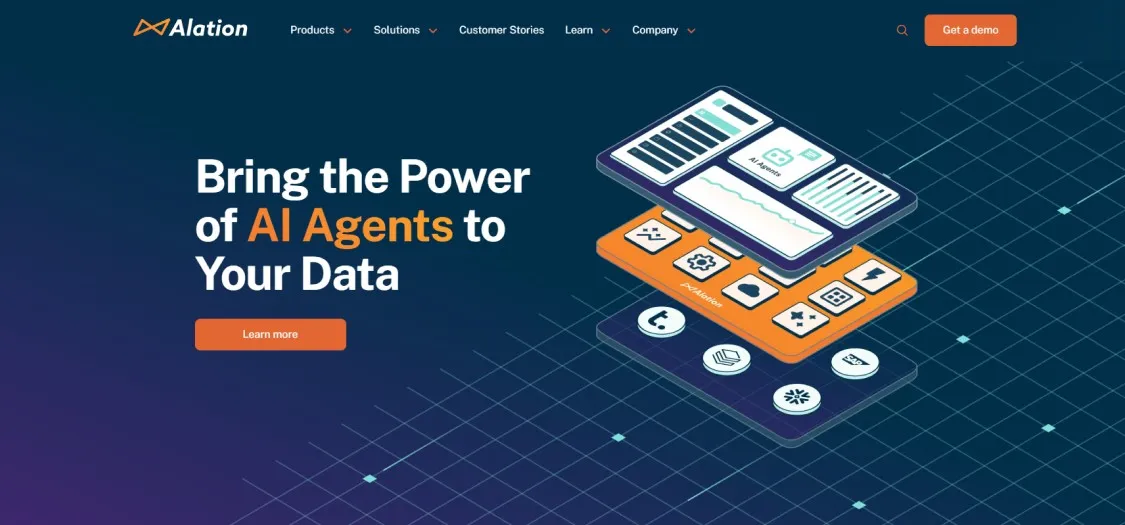Organizations in data management constantly seek innovative solutions to streamline their DataOps processes. In 2024, the demand for robust DataOps tools has only intensified. The DataOps definition refers to a methodology that brings together data scientists, data engineers, and other stakeholders to streamline and optimize the data operations processes to improve collaboration and productivity across data-related functions in an organization.
What are DataOps Tools?
DataOps tools are a crucial component of the DataOps methodology, providing the technological infrastructure necessary to implement efficient data processes. These tools facilitate collaboration between data engineers, data scientists, and other stakeholders in managing and analyzing data. From data integration and transformation to monitoring and observability, DataOps tools cover a broad spectrum of functionalities to ensure that data operations are streamlined, scalable, and reliable.
Benefits of DataOps Tools
- Improved Collaboration: DataOps tools foster collaboration among cross-functional teams by providing a centralized communication, documentation, and workflow management platform. This leads to enhanced transparency and a shared understanding of data processes across the organization.
- Agility and Flexibility: DataOps platform enable organizations to adapt quickly to changing data requirements and business needs. With the ability to automate and orchestrate workflows, teams can respond promptly to new data sources, evolving analytics requests, and emerging business challenges.
- Efficient Data Management: These tools streamline the data pipeline from ingestion to analytics, ensuring that data is cleansed, transformed, and made available for analysis promptly. This efficiency results in improved data quality and reliability for decision-making processes within Dataops team.
- Scalability: As data volumes grow, scalability becomes a critical factor. DataOps tools are designed to scale horizontally, accommodating increasing data loads seamlessly and ensuring that performance is maintained despite expanding datasets.
- Improved Observability: Observability is a key aspect of DataOps framework, allowing organizations to monitor the health and performance of their data processes. DataOps tools provide insights into the entire data pipeline, making it easier to identify bottlenecks, troubleshoot issues, and optimize performance.
- Cost Optimization: By automating repetitive tasks, optimizing data storage, and ensuring efficient resource utilization, DataOps tools contribute to cost reduction. Organizations can make well-informed decisions regarding resource allocation, thereby steering clear of unnecessary expenditures in data operations management.
- Regulatory Compliance and Governance: DataOps tools ensure data governance and regulatory compliance. They provide features for metadata management, data lineage tracking, and access controls, helping organizations maintain data integrity and adhere to industry regulations and DataOps best practices.
Top 12 Best DataOps Tools
1. Apache Airflow

Apache Airflow has been a staple in the DataOps ecosystem for its powerful workflow automation capabilities. In 2024, Airflow continues to lead the way in orchestrating complex data pipelines. Its suitability for organizations seeking seamless automation, scheduling, and monitoring of data workflows is attributed to its open-source design, extensibility, and compatibility with diverse integrations.
2. dbt (data build tool)

dbt, or data build tool, has gained popularity for its focus on analytics engineering. In 2024, dbt has gained renown for its proficiency in converting unprocessed data into valuable business insights. This open-source tool allows data analysts and dataOps engineers to build modular SQL queries, efficiently transforming data in their warehouse. With features like version control and documentation, dbt contributes significantly to the reliability and maintainability of data transformations.
3. Apache Kafka

Apache Kafka remains a cornerstone in real-time data streaming and event processing. In 2024, its distributed architecture, fault tolerance, and scalability make it an essential Dataops software for organizations dealing with massive volumes of data. Kafka's ability to provide real-time data observability enables businesses to react promptly to changing circumstances and make data-driven decisions in real time.
4. Snowflake

Snowflake has become synonymous with cloud-based data warehousing, offering a platform seamlessly integrating storage and compute resources. In 2024, Snowflake continues to gain traction for its scalability, performance, and ease of use. Its unique architecture allows organizations to scale their data operations on demand while ensuring data is accessible and secure.
5. Prometheus

Prometheus has emerged as a leading open-source monitoring and observability tool for containerized applications and microservices architectures. In 2024, its advanced capabilities, including comprehensive data collection and querying across multiple dimensions, establish it as an essential instrument for monitoring the health and efficiency of DataOps workflows. Prometheus enables organizations to gain insights into their data infrastructure and troubleshoot issues efficiently.
6. Alteryx

Data wrangling is a critical step in the data preparation process, and Trifacta excels in providing a user-friendly interface for this task. In 2024, Trifacta's advanced data wrangling capabilities continue to simplify the cleaning and transformation of raw data, empowering organizations to prepare their data for analysis quickly and accurately.
7. Grafana

Grafana has evolved beyond just a visualization tool; it has become a comprehensive observability platform. In 2024, Grafana's support for various data sources, extensive plugin ecosystem, and advanced dashboards make it a go-to choice for organizations aiming to gain deep insights into their DataOps processes. Grafana's ability to correlate data from multiple sources enhances observability and helps identify patterns and anomalies.
8. Databricks

Databricks combines the power of Apache Spark with collaborative capabilities in a unified analytics platform. In 2024, Databricks continues to be a game-changer for organizations dealing with big data processing and machine learning. Its collaborative environment enables data scientists, engineers, and analysts to work seamlessly together, fostering innovation and accelerating the development of data-driven applications.
9. StreamSets
 v
v
StreamSets has emerged as a leading DataOps tool for data integration and movement as real-time data processing gains prominence. In 2024, its user-friendly interface, extensive compatibility with diverse data sources and destinations, and robust monitoring features position it as the optimal solution for organizations aiming to enhance the efficiency of their data pipelines and guarantee the reliability of their data.
10. Elastic Stack

Elastic Stack, known as ELK (Elasticsearch, Logstash, and Kibana), has become synonymous with log management, search, and analytics. In 2024, Elastic Stack continues to be a powerful tool for organizations seeking to centralize and analyze their log data. Its scalability and real-time search capabilities contribute to improved data observability, enabling organizations to detect and respond to issues promptly.
11. DataDog

DataDog has established itself as a comprehensive monitoring and observability platform. In 2024, its ability to provide end-to-end visibility into infrastructure, applications, and logs makes it a valuable asset for organizations managing complex industrial DataOps processes. DataDog's machine learning capabilities help identify trends, predict issues, and ensure the overall health of data operations.
12. Alation

Data cataloging is crucial in ensuring data discoverability, governance, and collaboration. Alation, in 2024, stands out as a leading data catalog tool, offering a centralized repository for metadata and data lineage. Its collaborative features enable teams to work efficiently, fostering a data-driven culture within organizations.
Conclusion
As businesses increasingly adopt data-driven decision-making, the evolution of DataOps tools is inevitable. Innovations and advancements in this field will play a pivotal role in shaping the future of data management and observability. The advantages of employing these tools go beyond mere efficiency improvements, fostering a data-centric culture that enables organizations to make well-informed decisions grounded in dependable, scalable, and observable data processes. When choosing dataops tools, it is essential to gain insights and distinguish between DataOps vs DevOps and DataOps vs MLOPs.
If you are looking for a reliable partner to help you navigate the complex world of data management and observability, Saffron Tech is here to help. Reach out to discover more about our offerings and how we can assist you in achieving your business objectives.
Subscribe to Saffron Tech
Explore your marketing zen with our newsletter! Subscribe now.



